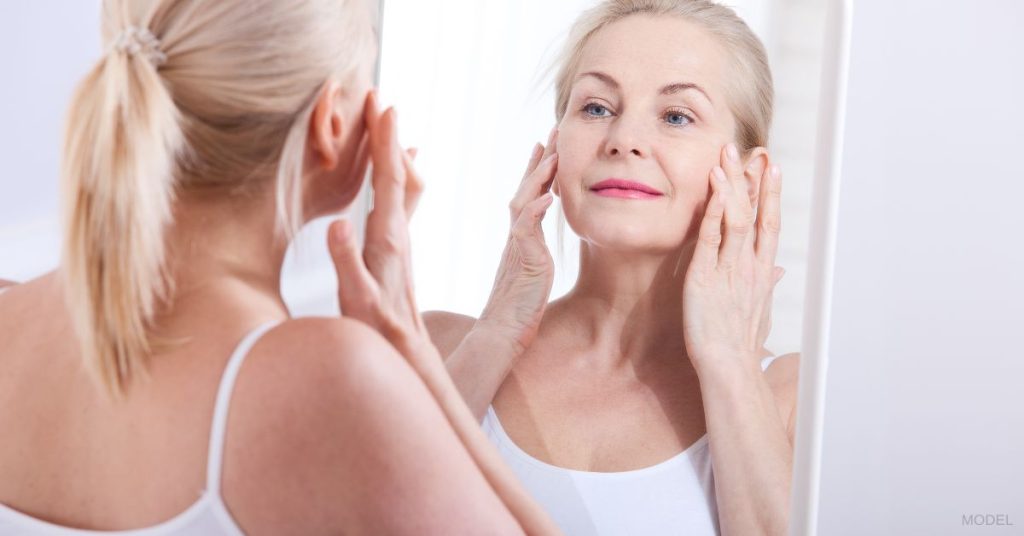If you look older and more tired than you feel, saggy or drooping eyelids may be the culprit, or puffiness and under-eye bags may be to blame. However, eyelid surgery (blepharoplasty) is a cosmetic solution that helps you look more youthful, refreshed, and alert. If you’re interested in exploring your options for upper or lower eyelid rejuvenation—or both—knowing what to expect from your blepharoplasty recovery time can help set you up for a successful procedure. We’re sharing 5 key takeaways below…
#1. Recovering From Blepharoplasty Varies From Patient to Patient
Every patient ages differently and, therefore, has unique needs and concerns. That’s why blepharoplasty at Mountain West Plastic Surgery is never a one-size-fits-all solution. During your consultation with one of our board-certified plastic surgeons, we explore the extent of eyelid correction necessary to achieve your aesthetic goals before recommending a surgical approach. Your age and medical history also play a role in determining your expected recovery timeline. Rest assured, you will leave your consultation with a personalized treatment and recovery plan that aligns with your unique needs and goals.
#2. Upper vs Lower Blepharoplasty Recovery Time Is the Same
While a combined upper and lower eyelid surgery procedure takes a few hours longer to perform, recovery time is the same whether you choose to have upper blepharoplasty, lower blepharoplasty, or both simultaneously. Other factors that can lengthen your blepharoplasty recovery time are whether your surgery includes a complementary procedure, such as a brow lift, to help you accomplish your desired results. You can learn more about the benefits of combining plastic surgery procedures in our related blog post here.
#3. The First Week After Surgery Is The Most Challenging
Upon returning home to recover on the same day as your eyelid surgery, patients are able to minimize discomfort by following our detailed post-op protocol. During the first 7 to 10 days post-op, it’s essential to prioritize rest and avoid strenuous activity. For most patients, swelling and bruising peak during this window. Numbness in the eyelid area is also common, and some patients may experience light sensitivity, blurry vision, and eye dryness. These symptoms gradually subside. Applying cool compresses and sleeping upright in a chair facilitate the healing process.
#4. The Entire Healing Process Can Take Several Months
While most patients look and feel “back to themselves” after a few weeks, it’s essential to understand that, depending on the extent of your procedure, the full blepharoplasty healing process can take 4 to 6 months. Although your blepharoplasty scars will be strategically concealed in your eyelid creases or lash lines, they will gradually fade and become barely visible within a year post-op. If you’re still wondering what patients look like after their blepharoplasty healing journey, we encourage you to visit our gallery of blepharoplasty before and after recovery photos.
#5. Protecting Your Incisions Aids Healing
Eyelid skin is naturally sensitive, but it becomes particularly vulnerable during the blepharoplasty healing process. The American Society of Plastic Surgeons recommends wearing tinted sunglasses while you recover from eyelid surgery. Not only will you look fashionable, but your incisions will be shielded from UV rays, and you can conceal your bruising behind your shades. Protecting your incisions from sun exposure and harsh facial products eases healing and lessens the risk of discoloration or scarring.
Now that you know more about recovering from blepharoplasty, it’s time to book your consultation! Contact our office online to request a consultation or call us at (406) 609-0210 to book an appointment.





Leave a Reply